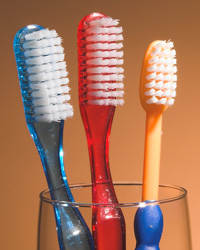Cracked Tooth - Near You in
Richard B. Scott, D.D.S.
Appointments: (714) 635-0892

Richard Scott D.D.S.
Richard B. Scott, D.D.S.
215 N. State College
Anaheim, CA 92806






If you're looking for dentures that look great and last, look no further than Richard B. Scott, D.D.S. located in the Anaheim, CA area. Richard Scott, D.D.S. will assess your needs and fit you with durable, comfortable, natural-looking dentures - at a price you can afford.
Dr. Scott has extensive experience providing gingivitis treatments in the Anaheim area. Bleeding gums can lead to more serious health problems if not treated promptly.
Our friendly, professional team will evaluate your needs and design a personal treatment plan. We'll help you have healthy gums and teeth for life.
If you need gum disease treatment, Anaheim area gum disease dentist, Dr. Scott offers extensive experience. Unhealthy gums can be a risk factor for more serious health problems if not treated promptly.
Our professional team will assess your situation and create a personalized treatment plan. We're committed to your life-long healthy gums and teeth.
Dr. Richard Scott is a trusted Anaheim area veneers dentist. Our professional team is dedicated to providing you with quality results in a comfortable and pleasant atmosphere.
You won't have to feel embarrassed any longer by crooked, chipped or discolored teeth. With your new dental veneers, you'll be thrilled to show off your healthy teeth and beautiful smile.

More Dental Hygiene Dentists in the Anaheim, CA Area Near You
Pragasam Family Dentistry, Inc.
2048 Orange Tree Ln
Redlands, CA, 92374-4565
(909) 793-3443
Chan, Susan D.D.S.
106 La Casa Via # 230
Walnut Creek, CA, 94598-3012
Doctor - Activate Your Free 1stDentalHygiene Directory Listing
Sturm, A Jack D.D.S.
1515 State St # 7
Santa Barbara, CA, 93101-2536
Thomas G Dwyer Inc
730 Sunrise Ave # 110
Roseville, CA, 95661-4549

